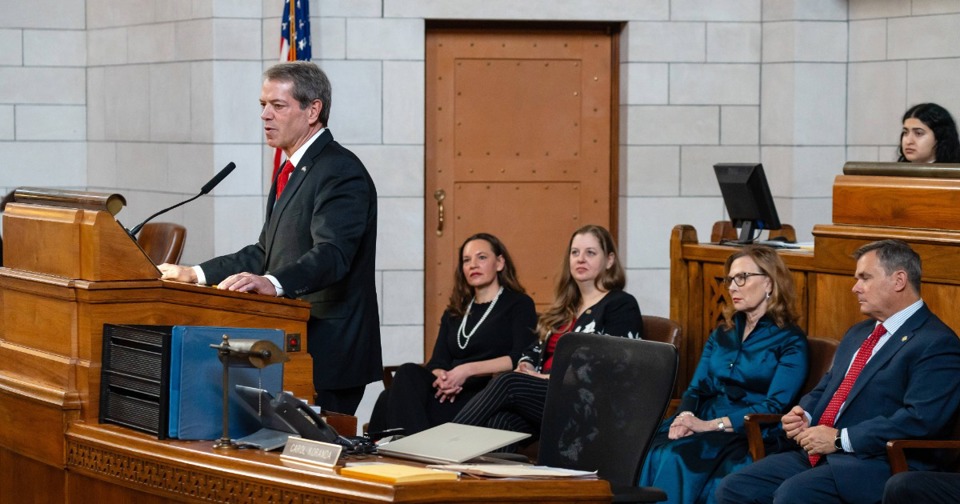Veto Sustained: Nebraska Says No to Needle Exchange Programs, Remains on the Frontlines of Drug Overdose and HIV Prevention

I appreciate the leadership and conviction of the 20 state senators who voted to sustain my veto of LB 307. Together, we successfully blocked a bad bill that would have brought needle exchange programs to Nebraska. By distributing free needles to addicts, these programs would have increased drug abuse and overdose deaths in Nebraska.
The intent of LB 307 was to reduce the spread of infectious diseases like HIV and reduce drug usage. However, opioid overdose, not HIV transmission, is the primary threat we face. Annually, HIV is responsible for fewer than 5,000 deaths in the U.S., while opioid overdoses kill over 80,000 Americans. Needle exchange programs, like those proposed in LB 307, feed into the opioid crisis. Where implemented, they have been shown to increase drug deaths.
Opioid overdoses are skyrocketing as drugs stream across our nation’s broken southern border. For Americans 18-45, fentanyl overdose is now the leading cause of death. Individuals who administer drugs by injection have the highest risk of overdose – a statistic highly relevant to the discussion on LB 307.
The State of Nebraska is actively working to prevent HIV transmission, but I refuse to sign off on policies that facilitate the use of dangerous drugs like fentanyl. Here are just a few of the examples of how the State is helping to mitigate the spread of HIV and to treat those with the disease.
Supporting 29 agencies to provide free HIV testing, ensuring early diagnosis and treatment
Connecting individuals to care and treatment services such as counseling, periodic medical evaluations, and home health care
Facilitating access to medicine that reduces the viral load of HIV in the blood, thereby greatly reducing the risk of transmission
Provider education and community outreach
These efforts have contributed to our state’s relatively low rate of HIV transmission. Nebraska’s diagnosed rate of HIV infection is about half the national average. In our state, the mortality rate of individuals with HIV is roughly one-third the overall U.S. rate.
While guarding against the spread of infectious disease, Nebraska remains on the frontlines of combating the opioid crisis.
Law enforcement
The Nebraska State Patrol is collaborating with local and federal agencies to crack down on drug trafficking.
Prevention
In 2018, Nebraska became the first state in the nation to require reporting of all dispensed prescription drugs to our Prescription Drug Monitoring Program. This helps identify patients who may be misusing opioids so that they’re not prescribed more of them.
Treatment
Through its no-cost naloxone program, the Nebraska Dept. of Health and Human Services has distributed thousands of kits that can be used administer life-saving treatment in the event of an opioid overdose emergency.
Thanks to these collaborative efforts, and many others like them, Nebraska has the lowest drug overdose mortality rate in America.
As Governor, I completely agree there is a need to prevent the spread of HIV and illicit drug usage. But I will never put my signature on legislation that fails to protect our kids from the scourge of deadly drugs. I will continue to work with state senators to strengthen those programs we have, and explore additional opportunities, to address drug use, with programs that don’t expose others to potential health and safety concerns.
Thank you, again, to the state senators who supported my veto. I look forward to our collaboration moving forward.
